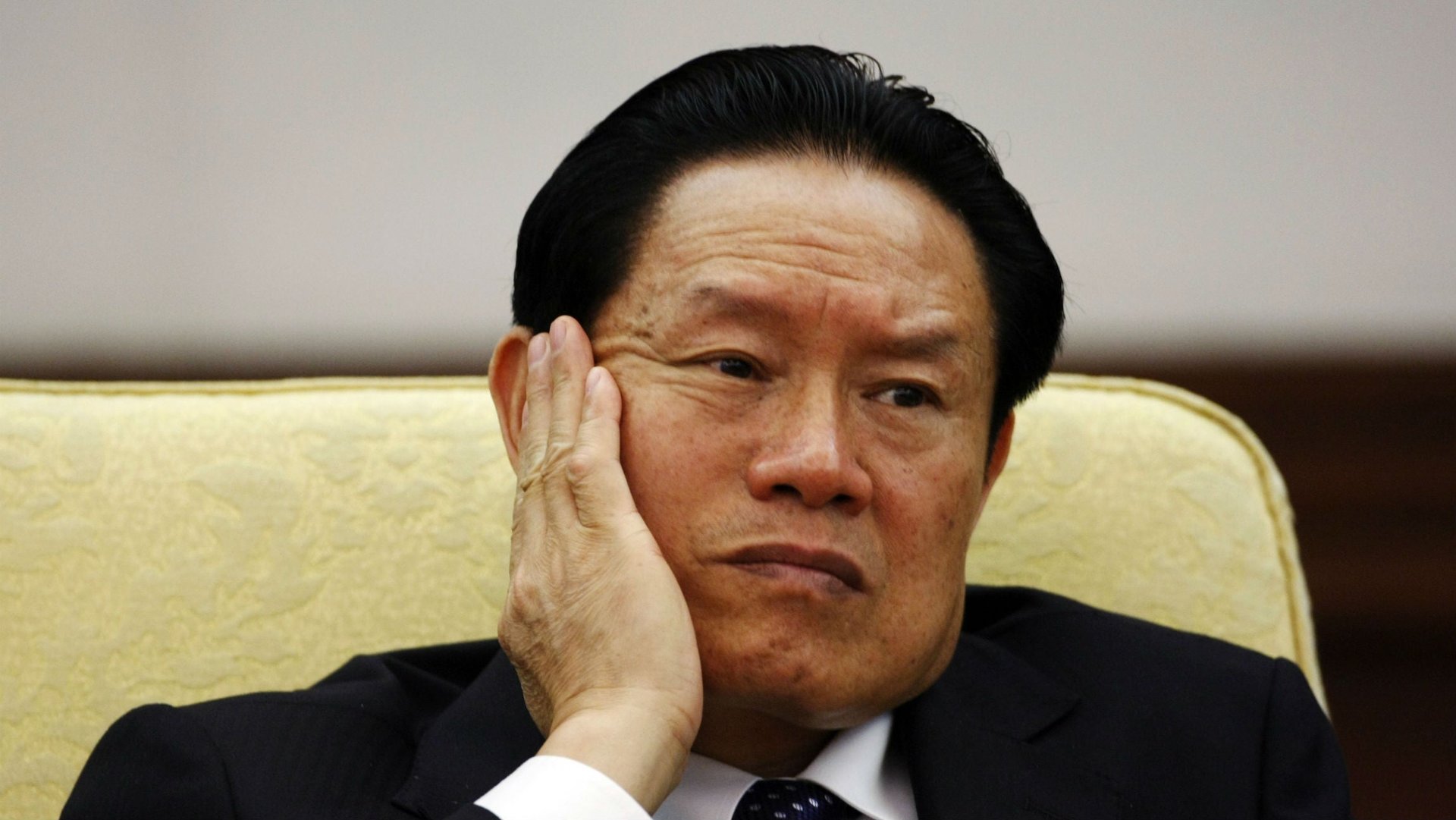China’s president is personally supervising the biggest corruption case since the Cultural Revolution
China’s crackdown on corruption is getting personal. Instead of putting the investigation into ex-security chief Zhou Yongkang for possible graft under the party’s discipline department, president Xi Jinping has set up a special unit that will report directly to him, the South China Morning Post (paywall) reports, citing unnamed sources. China’s CCTV News tweeted a similar report today, though the post was later removed and CCTV called it “incorrect information.” Heading the unit will be Fu Zhenghua, a former Beijing cop known for his tough-guy approach.


China’s crackdown on corruption is getting personal. Instead of putting the investigation into ex-security chief Zhou Yongkang for possible graft under the party’s discipline department, president Xi Jinping has set up a special unit that will report directly to him, the South China Morning Post (paywall) reports, citing unnamed sources. China’s CCTV News tweeted a similar report today, though the post was later removed and CCTV called it “incorrect information.” Heading the unit will be Fu Zhenghua, a former Beijing cop known for his tough-guy approach.
That’s a sign of the sensitivity of Zhou’s case, which is in some senses a bigger deal even than that of Bo Xilai, the now disgraced communist official from Chongqing. Zhou, 70, is a retired member of the party’s powerful Politburo Standing Committee, the country’s top decision-making body. He held vast influence over the country’s public security apparatus. An investigation into his family’s fortune, reported in August, marks the first time an official of such a high position, retired or not, has been targeted since China’s Cultural Revolution. Zhou is also the most powerful Chinese politician to be put under house arrest (paywall) since Zhao Ziyang, the former general secretary of the party who was detained at home for the remaining 15 years of his life for sympathizing with pro-democracy protesters in 1989.
Xi’s involvement is also a sign of his personal interest in the case—and the fact that his so-called campaign to take down both “flies” (low-level officials) and powerful “tigers” may be just as much about consolidating his own influence. (Here’s a list of other officials netted in the campaign.) Zhou is a known supporter of Bo, whose popularity in the party still resonates and challenges Xi’s leadership. Bo was a charismatic, populist leader who called for more state control of the economy—the opposite of the economic reforms Xi is hoping to implement. Moreover, Zhou, as we’ve reported, is unpopular among the party and the public for his support of labor camps, tightening internet controls, and the brutal treatment of protestors and political dissidents.
It’s a political process that has precedent. During Hu Jintao’s first year in office, he sacked nine officials of the rank of deputy minister or higher, and by the end of his tenure had fired over 70 officials. A cull of party cadres may also be important for reforms. Before Deng Xiaoping’s market reforms in the 1980s, a similar assault was carried out on officials tied with the Chinese oil-industry in 1979. China observers have commented that needed reforms, economic or political, will be slow until Xi and his new government can amass enough influence over the sprawling party. Removing detractors is one way to do that quickly.